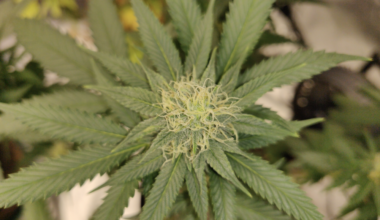A panel of Pennsylvania lawmakers approved an amendment on Tuesday that seeks to make it so medical marijuana businesses can receive state tax deductions for expenses they’re currently prohibited from claiming under federal tax law.
The amendment from Rep. Aaron Kaufer (R) was attached to a broader tax code reform bill that advanced through the House Finance Committee. In Pennsylvania, the state receives federal corporate tax returns, which do not allow for marijuana business expense deductions. What the amendment would accomplish is to allow medical cannabis companies to add deductions after-the-fact for state tax purposes.
The legislation would only apply to medical marijuana businesses’ state taxes, meaning those firms would still have to grapple with an Internal Revenue Service (IRS) code known as 280E that precludes businesses that work with federally controlled substances from making key tax deductions in their federal filings. But under the amended legislation, they could see some relief from the state.
“This just allows parity within the law,” Kaufer said ahead of the vote.
Rep. Kevin Boyle (D) said that “currently, without this amendment, the medical marijuana industry is, we believe, unfairly targeted. So this amendment to the bill is a serious upgrade to the overall legislation.”
The Pennsylvania Senate separately passed standalone legislation to make a state-level fix clarifying that medical marijuana businesses may access Pennsylvania’s banking system in April, and a companion House version was subsequently filed but has not yet moved through committee.
The 280E tax fix was included in an earlier version of the banking bill, but it was taken out in order to be handled as a separate issue.
Outside of Pennsylvania, New York’s governor recently signed a budget proposal that similarly includes provisions to let marijuana businesses take state tax deductions that are available to other industries despite an ongoing federal ban on cannabis.
—
Marijuana Moment is already tracking more than 1,000 cannabis, psychedelics and drug policy bills in state legislatures and Congress this year. Patreon supporters pledging at least $25/month get access to our interactive maps, charts and hearing calendar so they don’t miss any developments.![]()
Learn more about our marijuana bill tracker and become a supporter on Patreon to get access.
—
Rodney Hood, a former chairman of the National Credit Union Administration (NCUA) and current board member of the agency, said in April that states like Pennsylvania should be applauded for taking steps on their own to resolve the unique financial challenges that their cannabis markets face. But he said it’s not enough, and Congress needs to step in to codify a permanent solution, including on banking.
Last year, congressional researchers examined tax policies and restrictions for the marijuana industry—and how those could change if any number of federal reform bills are enacted.
A number of standalone bills to remove the 280E penalty’s application on marijuana businesses have been filed over the years in Congress, but none has ever been given a hearing or a vote.
But for the time being, the marijuana industry continues to face tax policy challenges under the umbrella of prohibition. And the Congressional Research Service (CRS) noted that IRS “has offered little tax guidance about the application of Section 280E.”
IRS did provide some guidance in an update in 2020, explaining that while cannabis businesses can’t take standard deductions, 280E does not “prohibit a participant in the marijuana industry from reducing its gross receipts by its properly calculated cost of goods sold to determine its gross income.”
The IRS update seemed to be responsive to a Treasury Department internal watchdog report that was released in 2020. The department’s inspector general for tax administration had criticized IRS for failing to adequately advise taxpayers in the marijuana industry about compliance with federal tax laws. And it directed the agency to “develop and publicize guidance specific to the marijuana industry.”
Medical Disclaimer:
The information provided in these blog posts is intended for general informational and educational purposes only. It is not a substitute for professional medical advice, diagnosis, or treatment. Always seek the advice of your physician or other qualified healthcare provider with any questions you may have regarding a medical condition. The use of any information provided in these blog posts is solely at your own risk. The authors and the website do not recommend or endorse any specific products, treatments, or procedures mentioned. Reliance on any information in these blog posts is solely at your own discretion.







